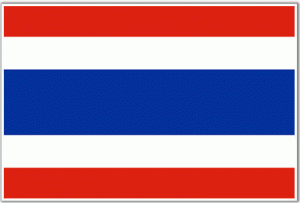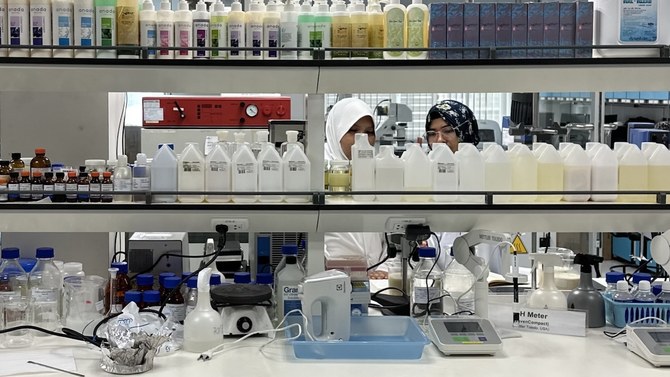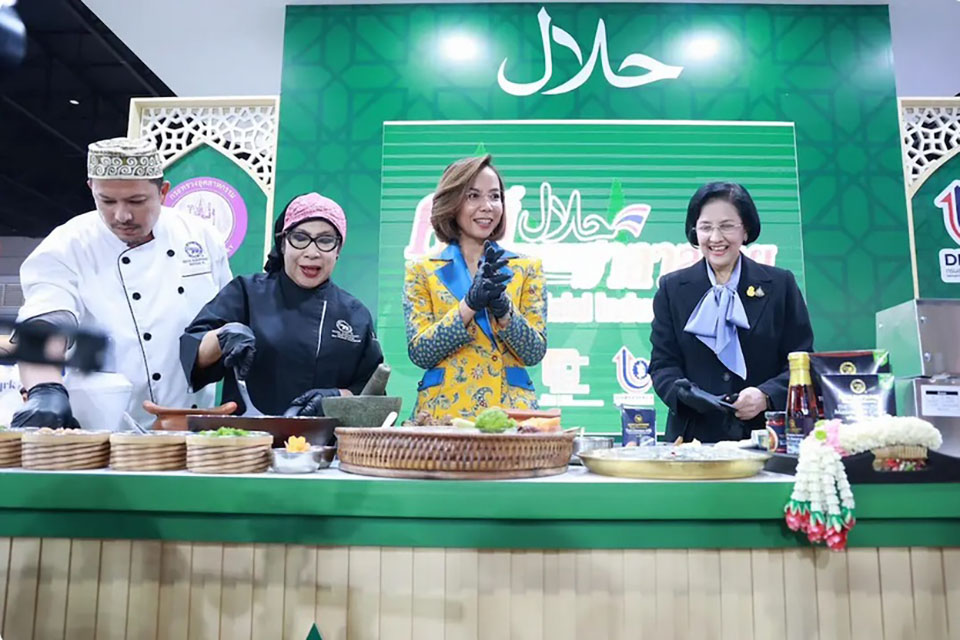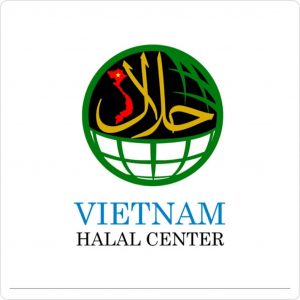Dawn – Kalbe Ali
Jurin Laksanawisit, the Deputy Prime Minister and the Commerce Minister of Thailand, recently stated that by 2050 the world population will be around 10 billion, and the key issue faced by the residents globally will be the “future of food: halal food and organic food.”
He stressed the need to explore these areas to find business opportunities and called upon the food industry to further its expertise in halal food as it remains a key challenge for the country despite $31.8 billion worth of exports in 2022.
Ensuring a completely halal food chain, from slaughtering to packaging, is a difficult task, especially with a Muslim population of only five to eight per cent — the majority of which eat all kinds of meats and seafood. Despite this, Thailand is currently one of the leading global halal food producers and exporters, and by the end of its fiscal year on Sept 30, 2023, halal food exports of the country are expected to close at around $8bn.
While Pakistan has also become a key importer of food items from Thailand as they are cheaper and offer a different flavour, Thai halal food businesses continue to venture into new markets. This year, they focused on other food-producing nations such as Australia, New Zealand, Europe and the US — countries with large Muslim populations that prefer to buy western processed and semi-processed halal food.
Pakistan stands to learn from Thailand’s profitable halal food export practices as local businesses enter joint ventures with their Thai counterparts
Thailand has more than 5,000 halal-certified companies with more than 160,000 items. The country’s halal food exports were around $6bn in its last fiscal year of 2021-22 and around $4bn the year before. But, the credit for this massive jump in businesses, exploring new markets and pitching cutting-edge competition does not solely goes to the private sector.
Several Thai government agencies have played a significant role in expanding the outreach of their businesses, especially in the halal sector.
The Department of International Trade Promotion, in collaboration with the Thai Chamber of Commerce, recently organized the “THAIFEX Anuga Asia 2023” food exhibition — Asia’s leading food and beverage trade show. The Royal Embassy of the Kingdom of Thailand, Islamabad, also sponsored a delegation of Pakistani businessmen at the event.
The exhibition showcased how Thailand gives special importance to the halal food industry, as there was a separate enclosure for this section. The head of the Pakistani delegation was Senior Vice President of Lahore Chamber of Commerce and Industries, Zafar Mehmood, who visited the Halal Science Centre, Chulalongkorn University, Bangkok.
“I met Dr Najwa Yangya Santoworakun, the head of the centre, and I’m satisfied with the system of certifying halal foods and maintaining the integrity and a strict regulatory regime over halal certification,” he said.
Another member of the delegation Chaudhary Muhammad Ali, from the Islamabad Chamber of Commerce and Industry, added that technology transfers from Thailand were essential in setting up a value-added food industry in Pakistan.
“We import millions of dollars worth of carbonated drinks from Thailand; I am negotiating with some companies to establish one such unit in Islamabad,” he said.
Mr Ali further stated that members of the Thai Chamber of Commerce have suggested that Pakistani businesses should focus on implementing scientific developments in the food sector, as food is closely related to culture and religion.
With the combined efforts of officials who facilitate the investors and the industry, many Pakistanis who visited the exhibition have entered into joint ventures with their Thai counterparts to establish units for preparing and packaging food for cats, dogs and parrots.
Pakistan was becoming a key market for a wide range of food imports from Thailand, including canned and processed fruits, beverages, wheat products and other ready-to-eat foods, seasonings, edible oil, fresh fruits, frozen and dried fruits, gum and sweets, fishery products, cocoa and additives, canned, processed vegetables as well as pet food.
Incidentally, despite the economic crunch and dollar crises, Thailand’s food exports to Pakistan witnessed significant growth and, as of April 2023, compared to the same period in 2022, drinks and beverages grew by 452pc, gum and sweets grew by 246pc, fish oil grew by 89pc and edible oil grew by 87pc.
Thai halal products and services, for both domestic and international consumption, are granted the “Halal Certificates” from the Central Islamic Council of Thailand, with the support of the Halal Standard Institute of Thailand and the Halal Science Center, Chulalongkorn University to ensure religious regulations and scientific standards.
Published in Dawn, The Business and Finance Weekly, July 17th, 2023

 Jurin Laksanawisit, the Deputy Prime Minister and the Commerce Minister of Thailand, recently stated that by 2050 the world population will be around 10 billion, and the key issue faced by the residents globally will be the “future of food: halal food and organic food.”
Jurin Laksanawisit, the Deputy Prime Minister and the Commerce Minister of Thailand, recently stated that by 2050 the world population will be around 10 billion, and the key issue faced by the residents globally will be the “future of food: halal food and organic food.”

